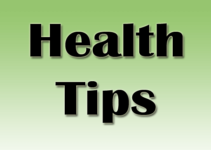Simple and general nutrition tips for High Blood Pressure
Eating foods rich in potassium will help protect some people from developing high blood pressure. Many fruits, vegetables, dairy foods, and fish are good sources of potassium.
Eat fewer processed foods Potato chips, frozen dinners, bacon and processed lunch meats are high in sodium. Avoid such foods.
Blueberries, as well as raspberries and strawberries, contain natural compounds called anthocyanins that protect against high blood pressure.
Having a bowl of breakfast cereal, especially whole-grain, high-fiber cereals like oatmeal, oat squares, bran flakes or shredded wheat, can reduce your chance of developing high blood pressure.
Drinking a glass of beet juice can lower blood pressure within just a few hours. Same with other nitrate-rich foods like spinach, lettuce, cabbage, carrots and, of course, whole beets
Eating a one-ounce square of dark chocolate daily can help lower blood pressure, especially in people who already have hypertension wapping some of your daily calories with one 6-ounce cup of low-fat yogurt, without increasing the number of calories you eat in a day, can lead to a lower risk of high blood pressure.
Toast the day with a glass of non-alcoholic red wine and cut about 6 points off your systolic and 2 points from your diastolic blood pressure.
Packed with vitamin C and antioxidants, pomegranates are good at helping you maintain a healthy blood pressure during exercise.
Eat a handful of dried apricots every afternoon. Like bananas, apricots are a particularly good source of potassium. Plus they have lots of fibre, iron and beta carotene. The drying process actually increases the concentration of these nutrients.
Sprinkle 2 tablespoons of flaxseeds on your yogurt in the morning and mix 2 tablespoons into your ice cream, soup, spaghetti sauce or other food later in the day.

